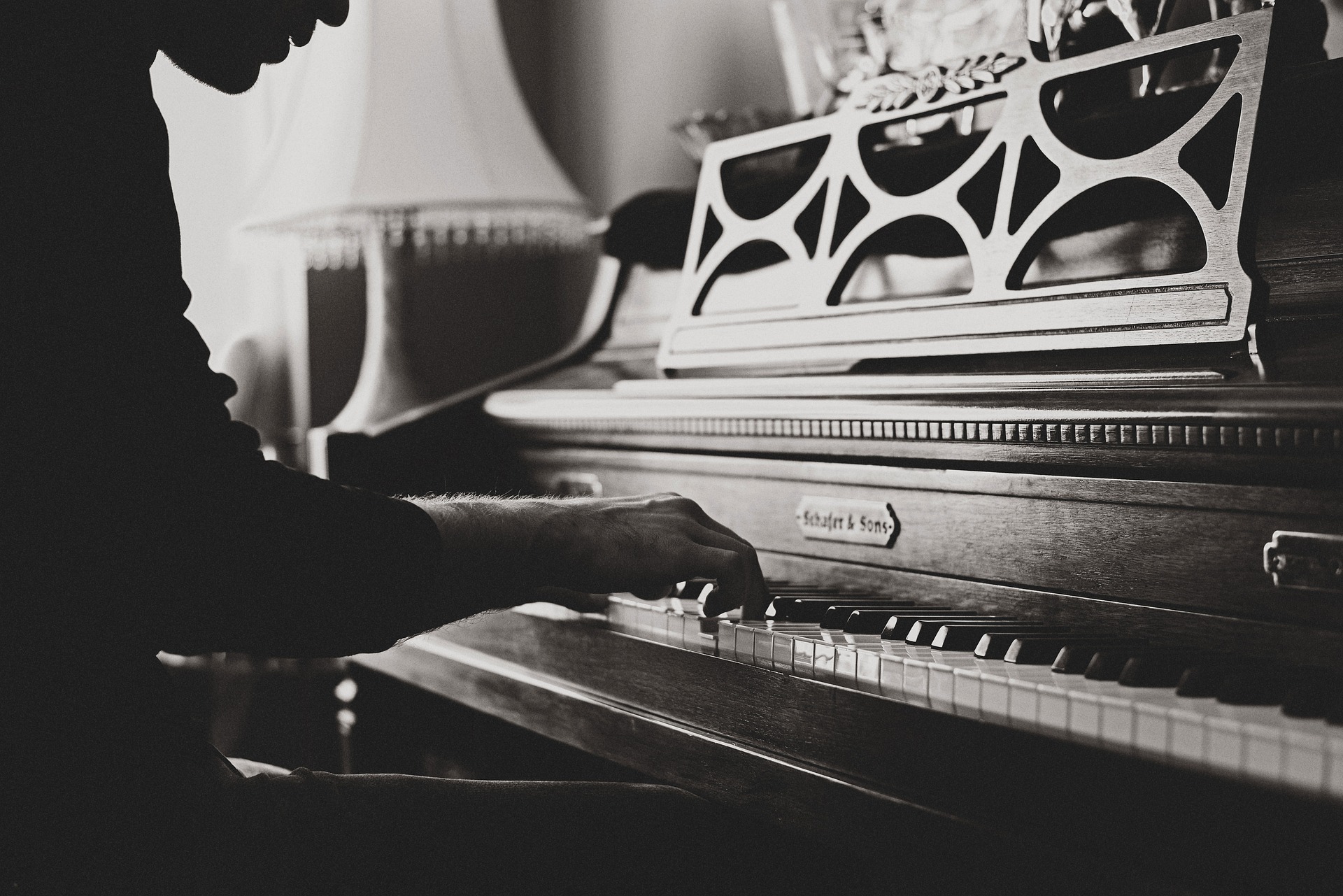Over the summer we ran a three part series “Antidotes for Performance Anxiety” by Dr. Miranda George that focused on strategies to combat stage fright as a performer and how teachers can mitigate performance anxiety with their students. In this addendum to that series, Dr. George discusses how trauma, mental illness, and addiction can affect strategies to overcome performance anxiety and how to get help overcoming these obstacles. If you missed the three part series, you can find Part 1 on Awareness here, Part 2 on Strategies here, and Part 3 on Environment here.
Tip of the Iceberg: When Performance Anxiety Isn’t the Problem
There are exceptions to the rule when it comes to strategizing one’s way out of performance anxiety symptoms. Unresolved trauma, mental illness, addiction, or any combination of these issues may have the power to reduce the effectiveness of physical and cognitive strategies. There is a reason for this reduced effectiveness.
If struggling with mental illness, unresolved trauma, or addiction, a musician’s number one priority is not to nail down a career in performance or to present a flawless musical offering. In the midst of grave mental health issues, a musician’s number one priority is self-love, self-care, self-acceptance, and recovery/therapy. The body and mind are the foundation from which our music is made. Our musical output is inextricably tied to our sense of safety and how deeply we feel worthy of love and belonging. Are we whole, or is our music made in emotional debt?
It is seductive to think that with enough self-sacrifice and dedication to musical study, musicians will be rid of these widespread problems, that the pain will go away. It is seductive to believe that we can pretend to be someone we’re not, that all of the hustling and relentless seeking of validation will get us to where we will finally be happy, and that we can take good care of ourselves when we are finally in an acceptable place in our careers.
That’s when performance anxiety says, “Not like this.”
What does “not like this” mean?
It means “take better care of yourself.” It means “get the help/empathy you need” be it from a licensed therapist or a support group. It means “place very strong boundaries” with toxic relationships and toxic environments that sustain or worsen suffering. It means “no more self-betrayal.” It means “be authentic” by re-examining and owning your story.
Easier said than done. Many professional musicians do not have the luxury of taking a leave of absence and the stigma of mental illness and addiction remains to exacerbate feelings of isolation. Countless musicians struggle from unresolved trauma, mental illness, and addiction.
Trauma victims and those suffering from various mental health issues such as clinical depression or anxiety disorders, often benefit from working with mental health professionals. Psychiatric consultation may be suggested to treat mental health disorders. Treatment of addiction involves detoxification, often paired with behavioral counseling, evaluation and treatment of co-occurring mental health issues, and long-term follow up to prevent relapse (counseling, rehabilitation, or support group attendance).
Performance anxiety is not an enemy to be rid of. Sometimes it is a demand from the body and mind for authenticity, self-love, and empathy. As musicians, how do we respond to this demand? We have a golden opportunity to lessen the grip these struggles have on musicians through awareness/literacy, conversation, empathy, and connection.
Resources and Sources:
- Alcoholics Anonymous: Aa.org
- Codependents Anonymous International: Coda.org
- Crisis Text Line: text 741741, for free 24/7 crisis counseling via text: www.crisistextline.org
- The Daring Way (list of shame research certified therapists) thedaringway.com
- National Institute on Drug Abuse: drugabuse.gov
- Psychology Today Directory, Find a therapist or counselor: therapists.
psychologytoday.com/rms - Suicide Prevention Lifeline: provides 24/7, free and confidential support for people in distress, prevention and crisis resources for you or your loved ones, and best practices for professionals. Call 1-800-273-8255; suicidepreventionlifeline.org
- Beyond Belief: Agnostic Musings for a 12-Step Life, by Joe C.
- The Body Keeps the Score, by Bessel Van Der Kolk
- “From Parent Pleasing to People Pleasing,” by Leon Seltzer: www.psychologytoday.
com/blog/evolution-the-self/ 200807/parent-pleasing-people- pleasing-part-1-3 - “Trauma and the Musician’s Body,” by Ellen McSweeney: van-us.atavist.com/performance-paralysis
- Understanding Codependency, by Joseph Cruse & Sharon Wegscheider-Cruse
- Miranda George Articles regarding trauma, mental illness, and addiction: MirandaGeorgeArticles.
wordpress.com
 Dr. Miranda George is an active writer and lecturer on the topic of performance anxiety in musicians. She has received invitations to speak in public schools, universities, and in conferences such as the Texas Music Educators Association Convention and the Midwest Clinic. Dr. George recently finished her fifth year on the music faculty of the University of Texas at Arlington, and she is a private trumpet and voice teacher for Coppell Middle School East. To learn more about Dr. Miranda George and to read more of her writing, visit her Facebook Page here and her website here.
Dr. Miranda George is an active writer and lecturer on the topic of performance anxiety in musicians. She has received invitations to speak in public schools, universities, and in conferences such as the Texas Music Educators Association Convention and the Midwest Clinic. Dr. George recently finished her fifth year on the music faculty of the University of Texas at Arlington, and she is a private trumpet and voice teacher for Coppell Middle School East. To learn more about Dr. Miranda George and to read more of her writing, visit her Facebook Page here and her website here.







Very impressive and helpful stuff, Thanks for sharing.
I wish all teaching professionals in the music industry knew about this. Several years ago I sought out piano lessons from the head of a local university’s piano department. I took those lessons specifically to try to find help with debilitating performance anxiety (whether playing piano for one person I know well or a whole room of strangers). This lady, a PhD, was CLUELESS about what may be causing me difficulty. Knowing what I know now, it is obvious to me that folks in the music teaching industry are NOT taught about musical performance anxiety and its roots in childhood trauma. (Before studying with this woman, I studied with a local teacher of adults and children who had been doing this for DECADES and she, too, was unable to help me.) It wasn’t until I learned to search the internet for “complex trauma musical performance anxiety” that I was able to find a LOT of literature on the topic. I just realized this today, at 49 years old. I have been playing piano since I was in the 7th grade.